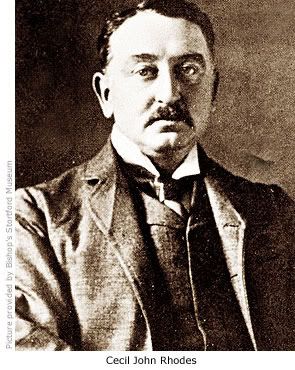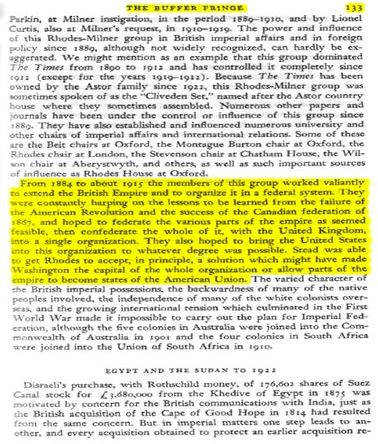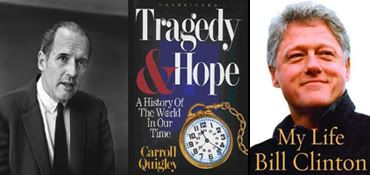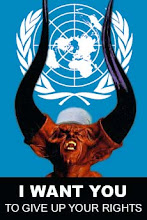
Dr. Carroll Quigley, a highly respected professor of history at the Foreign Service School of Georgetown University for 28 years, revealed in his 1,348 page magnum opus Tragedy and Hope (1966) the nefarious goal of Cecil Rhodes’ secret society calling for an American Union, coming to fruition today as the North American Union. From 1884 to about 1915, according to Dr. Quigley, the members of the Rhodes Secret Society exhaustively worked at extending the British Empire and forming a federal system. The Rhodes Secret Society was “constantly harping on the lessons to be learned from the failure of the American Revolution and the success of the Canadian federation of 1867, and hoped to federate the various parts of the empire as seemed feasible, then confederate the whole of it, with the United Kingdom, into a single organization…(hoping) to bring the United States into this organization to whatever degree was possible…(making) Washington the capital of the whole organization or allow parts of the empire to become states of the American Union“
Below see a scan copy of page 133 of Tragedy and Hope

It is interesting to note that despite an aversion by the Rhodes Secret Society towards the success of our American Revolution accentuating a victory for sovereignty and freedom predicated upon a Constitutional Republic, the Rhodes Secret Society was willing to adhere to diplomacy by deception in order to confederate independent nations into a single federation or union disregarding the sovereignty of nations. Diplomacy by deception continues to be adhered to by the Council on Foreign Relations (CFR) under the patronage and guidance of the Rockefellers. It is of utmost importance to understand the deeply rooted genesis in the world of foreign affairs as the Royal Institute for International Affairs (RIIA) headquartered at Chatham House, St. James Square, London, is the ‘mother’ of the American Council of Foreign Relations (CFR).
Dr. Quigley attributes the success of the Rhodes Secret Society to their effectiveness in concealing its existence. Its members’ preference was to maintain a stealthy appearance with a series of overlapping circles or rings partly concealed by being hidden behind formally organized groups of no obvious political significance and avoiding an appearance of being an integrated group. Dr. Quigley provides a lengthy roster and structure of a Tentative Roster of the Milner Group in the Appendix of his book, The Anglo-American Establishment. The front organization for the Rhodes Secret Society was the Round Table Group in Great Britain which was working in concert with J. P. Morgan in the United States to establish its front organization in the United States. Dr. Quigley described the genesis of the Council on Foreign Relations as follows:
“At the end of the war of 1914, it became clear that the organization of this system had to be greatly extended…Lionel Curtis…established, in England and each dominion, a front organization to the existing local Round Table Group…This front organization, called the Royal Institute of International Affairs, had as its nucleus in each area the existing submerged Round Table Group…in New York it was known as the Council on Foreign Relations, and was a front for J. P. Morgan and Company in association with the very small American Round Table Group. The American organizers were dominated by the large number of Morgan ‘experts’...The Round Table for years (until 1961) was edited from the back door of Chatham House grounds in Ormond Yard, and its telephone came through the Chatham House switchboard (Tragedy and Hope: 951-952).“
Stealth is the preferred modus operandi practiced by the Rhodes Secret Society, Royal Institute for International Affairs (RIIA), and the Council of Foreign Relations (CFR) in establishing the European Union (EU), the North American Community (AKA: North American Union – NAU), and last week’s Union of South American Nations (UNASUR). Stealth has enabled them to manipulate the American people by keeping us ignorant, uninformed, and confused from the days of Cecil Rhodes to today. Dr. Quigley described the manipulation of such tactics over our American political process vis-a-vis the false left vs. right paradigm:
“The chief problem of American political life for a long time has been how to make the two Congressional parties more national and international…(therefore) argument that the two parties should represent opposed ideals and policies, one, perhaps, of the Right and the other of the Left, is a foolish idea acceptable only to doctrinaire and academic thinkers…Instead the two parties should be almost identical, so that the American people can ‘throw the rascals out’ at any election without leading to any profound or extensive shifts in policy (Tragedy and Hope: 1247-1248).“
Such stealthy underhanded tactics have always been the means to an end, including but not limited to the eradication of the sovereignty of independent nations in order to achieve their ultimate goal of establishing a one world government, transcending from the inception of the Rhodes Secret Society to the Round Table Group in Great Britain to Royal Institute for International Affairs (RIIA), and the Council of Foreign Relations (CFR). Tragedy and Hope took Dr. Quigley over twenty years of researching the coveted archives of the Cecil Rhodes secret society. Dr. Quigley dedicated his career “to training undergraduates in techniques of historical analysis which will help them to free their understanding of history from the accepted categories and cognitive classifications of the society in which we live, since these, however necessary…nevertheless do often serve as barriers which shield us from recognition of the underlying realities themselves (Tragedy and Hope: ix).“

Dr. Quigley had a profound influence on numerous future diplomats and government officials. Amongst these individuals included former President Bill Clinton who commended Quigley during his Democratic Presidential Nomination Acceptance Address stating “as a teenager, I heard John Kennedy’s summons to citizenship…then, as a student at Georgetown I head that call clarified by a professor name Carroll Quigley, who said to us that America was the greatest nation in history because our people had always believed in two things: that tomorrow can be better than today and that every one of us has a personal moral responsibility to make it so (http://www.americanrhetoric.com/speeches/wjclinton1992dnc.htm).“
According to Dr. Quigley, “by the middle 1890s Rhodes had a personal income of at least a million pounds sterling a year (then about five million dollars) which was spent so freely for his mysterious purposes…his desire to federate the English-speaking peoples and to bring all the habitable portions of the world under their control…leaving part of his great fortune to fund the Rhodes Scholarships at Oxford in order to spread the English ruling class tradition throughout the English-speaking world as (his mentor Professor at Oxford) Ruskin had wanted (Tragedy and Hope: 130-131).“ It is interesting to note that former President Bill Clinton was a recipient of Rhodes Scholarship in 1968 along with extremely powerful and prominent individuals from predominantly the two political party paradigm including but not limited to Dean Rusk in 1931, U.S. Secretary of State, 1961-1969, in 1951 Richard N. Gardner U.S. Ambassador and CFR Director, in 1968 Strobe Talbott, American diplomat U.S. Deputy Secretary of State (1994-2001) and Time Magazine Editor-at-Large, Foreign Affairs journalist and President of the Brookings Institution, and in 1973 Richard N. Haass President of the Council on Foreign Relations and Director of the Policy Planning Staff at the U.S. Department of State, 2001-2003 (http://www.americanrhodes.org/). All of these individuals are members of the Council on Foreign Relations.
Dr. Quigley exposed their matrix of complete control over individuals and society:
“It is increasingly clear that, in the twentieth century, the expert will replace…the democratic voter in control of the political system. Hopefully, the elements of choice and freedom may survive for the ordinary individual in that he may be free to make a choice between two opposing political groups (even if these groups have little policy choice within the parameters of policy established by the experts) and he may have the choice to switch his economic support from one large unit to another. But, in general, his freedom and choice will be controlled within very narrow alternatives by the fact that he will be numbered from birth and followed, as a number, through his educational training, his required military or other public service, his tax contributions, his health and medical requirements, and his final retirement and death benefits (Tragedy and Hope: 866).“
Perhaps this is the reason why a third party candidate has never won a presidential election in the history of the United States. Just as importantly, Dr. Quigley attested to the forces that have controlled and continue to control England and the United States:
“The Liberal Party was not so closely controlled as was the Conservative Party, but its chief leaders were on intimate relations of friendship and cooperation with the Cecil Rhodes crowd…which was especially true of Lord Rosebery, who was prime minister in 1894-1895, and H. H. Asquith, who was prime minister in 1905-1915. Asquith married Margot Tennant…in 1894, and had Balfour as his chief witness at the ceremony…In later years Balfour was the closest friend of the Asquiths even when they were leaders of two opposing parties (Tragedy and Hope: 475).…(likewise) There does exist, and has existed for a generation, an international Anglophile network which operates, to some extent, in the way the…Right believes the Communists act. In fact, this network, which we may identify as the Round Table Groups, has no aversion to cooperating with the Communists, or any other groups, and frequently does so…I know of the operations of this network because I have studied it for twenty years and was permitted for two years, in the early 1960’s, to examine its papers and secret records. I have no aversion to it or to most of its aims…but in general my chief difference of opinion is that it wishes to remain unknown, and I believe its role in history is significant enough to be known (Tragedy and Hope: 950).“
Dr. Quigley taught at Harvard where he received his undergraduate degrees and his doctorate. He also taught at Princeton and at the Industrial College of the Armed Forces in 1951. Moreover, he also taught in Africa at the Brookings Institution in 1961, and lectured at many other places including the U.S. Naval Weapons Laboratory, the Foreign Service Institute of the State Department and the Naval College at Norfolk, Virginia. In 1958 Dr. Quigley was a consultant to the Congressional Select Committee that established the national space agency. Also, he was a collaborator in history to the Smithsonian Institution after 1957 assisting in the establishment of the Museum of History and Technology and in the summer of 1964 he served at the Navy Post-Graduate School in Monterey, California as consultant to Project Seabed, a visualization and future design program of what American weapons systems would like in the 1970s. In short, Dr. Quigley’s curriculum vitae is unequivocally scholarly, impressive, and indicative of the confidence of both the Eastern Establishment and the United States government during the Cold War.
Dr. Quigley’s Tragedy and Hope is loaded with far more revelations than this article can possibly cover here. However, Dr. Quigley’s provocative revelations may account for his fall from grace amongst the circles of the intellectual elite, the British Establishment, and the American Eastern Establishment, all of which had trusted him to the extent of allowing him to access to their most coveted archives and inner workings. In fact, a few thousand copies of Tragedy and Hope were sold prior to the ‘accidental destruction’ of the plates in an attempt to suppress subsequent editions from being printed according to a taped interview discovered in Quigley’s archives at Georgetown University by Dr. Stanley Montieth.
| Author of Tragedy and Hope (tragedy is all the people who must suffer and die for the NWO, and the hope is the NEW WORLD ORDER ) Professor Quigley was a Globalist, he supported the idea NEW WORLD ORDER and wrote about it, he, unlike the elites, thought the people should know about it. "The powers of financial capitalism had another far reaching aim, nothing less than to create a world system of financial control in private hands able to dominate the political system of each country and the economy of the world as a whole. This system was to be controlled in a feudalist fashion by the central banks of the world acting in concert, by secret agreements, arrived at in frequent private meetings and conferences. The apex of the system was the Bank for International Settlements in Basle, Switzerland, a private bank owned and controlled by the worlds' central banks which were themselves private corporations. The growth of financial capitalism made possible a centralization of world economic control and use of this power for the direct benefit of financiers and the indirect injury of all other economic groups." Tragedy and Hope: A History of The World in Our Time (Macmillan Company, 1966,) Professor Carroll Quigley of Georgetown University "The Council on Foreign Relations is the American branch of a society which originated in England ... [and] ... believes national boundaries should be obliterated and one-world rule established." Dr. Carroll Quigley "I know of this network because I have studied it for twenty years and was permitted for two years in the early 1960s to examine its papers and secret records. I have no aversion to it or to most of its aims and have, for much of my life, been close to it and to many of its instruments. I have objected, both in the past and recently, to a few of its policies ... but in general my chief difference of opinion is that it wishes to remain unknown, and I believe its role in history is significant enough to be known." Dr. Carroll Quigley, Tragedy and Hope "As a teenager, I heard John Kennedy's summons to citizenship. And then, as a student, I heard that call clarified by a professor I had named Carroll Quigley."President Clinton, in his acceptance speech for the Democratic Party's nomination for president, 16 July 1992 |

















No comments:
Post a Comment